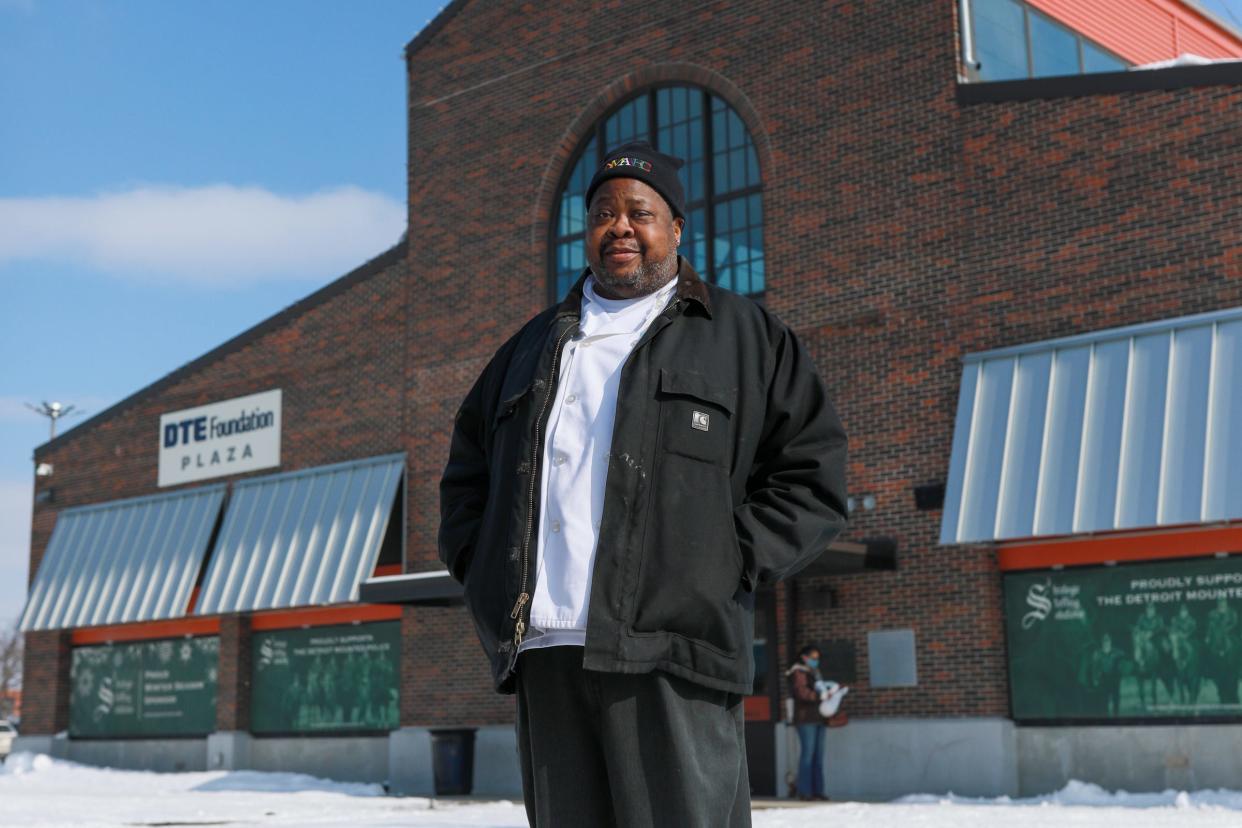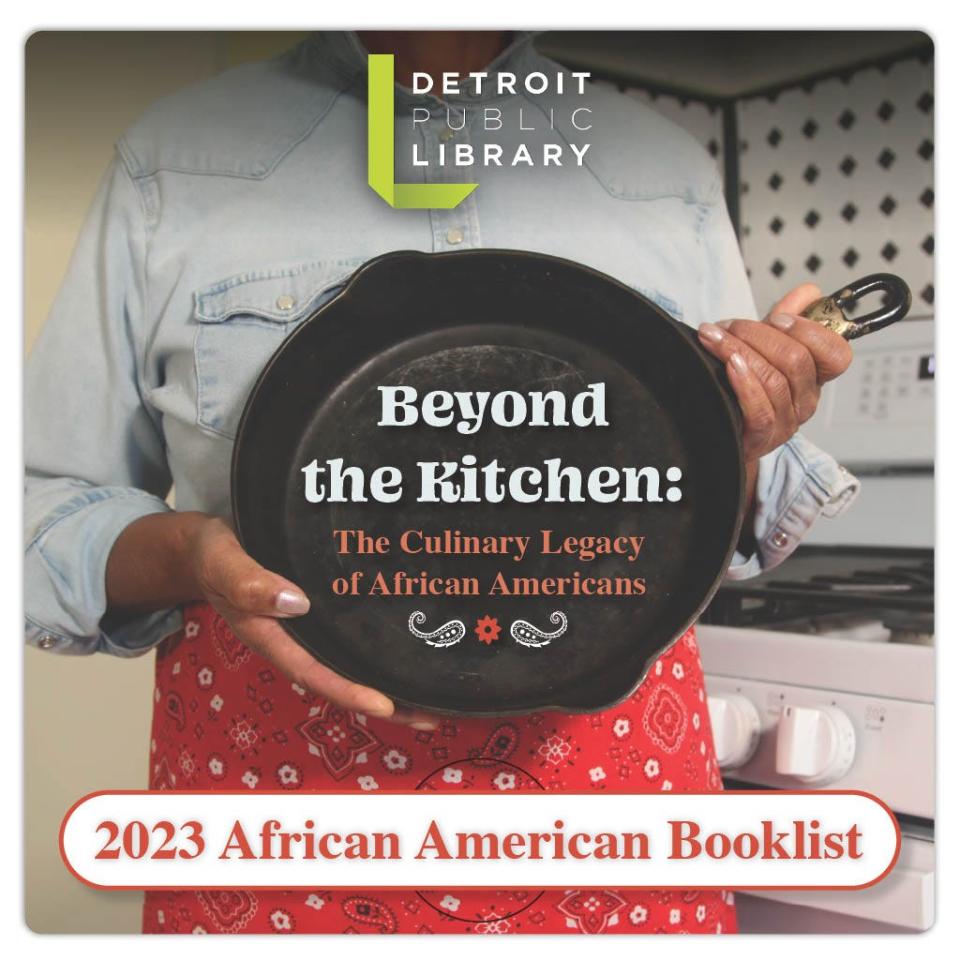Detroit Public Library African American Booklist highlights Black cookbooks, Detroit chef

For more than 50 years, the Detroit Public Library has published its African American Booklist, a guide for literary works produced by African American writers and centered on the stories of Black figures. The 2023 edition, titled "Beyond the Kitchen: The Culinary Legacy of African Americans," highlights Black storytelling in the food space.
The list of fiction and nonfiction, adult and children's books, cookbooks and memoirs was curated by Detroit Public Library librarians and features an excerpt from award-winning journalist Toni Tipton-Martin's "The Jemima Code: Two Centuries of African American Cookbooks," (University of Texas Press; 2015) and an exclusive conversation with chef Phil Jones, interviewed by the Free Press.
A longtime Detroiter, Jones worked his way up from dishwasher to a chef at The Rattlesnake Club, the same fine dining establishment where former executive chef Jimmy Schmidt earned the city its first James Beard Award.
More: James Beard Foundation Awards names 5 metro Detroit nominees
More: Chef of the Year Phil Jones distributed 100,000 pounds of chicken in height of pandemic
He went on to found Farmacy Food, a subscription-based service that makes healthy meals accessible at an affordable cost, and ventured into food justice. And in 2021, Jones was named the Detroit Free Press/Metro Detroit Chevy Dealers Chef of the Year for his tireless efforts feeding those facing hunger during the early days of the COVID-19 pandemic and beyond.
In the interview, Jones honors the legacy of the Black culinarians before him, recognizes the emerging cooks on Detroit's food scene and reflects on his own journey to becoming a chef with a heart for giving back.
The Detroit Public Library's 2023 African American Booklist is distributed to book enthusiasts throughout metro Detroit and beyond. The booklist is also available at detroitpubliclibrary.org. The full interview with Jones follows.

Lyndsay C. Green: How have you seen Detroit’s food scene evolve over the past 40 years?
Phil Jones: Overall, there have been some changes and some things are exactly the same. You would never know, as you read about food, that Detroit is about 75% Black. There are a lot of fabulous, young, Black chefs coming up that don’t get recognized or get the financial backing to get their cuisine out there. I have seen more opportunities for women in the kitchen, which used to be far and few between, but there are few examples of women and people of color in ownership and management positions.
LCG: As someone who is responsible for telling stories about local culinarians, how can I keep up-and-coming Black chefs on my radar?
PJ: Many are taking the pop-up route — some more successfully than others.
More: Fried Chicken and Caviar: A case study on pop-up restaurants and the future of food
More: 12 Detroit-area pop-up restaurants to know
More: Free Press Best New Restaurants list adds pop-ups, bars, chefs
LCG: How can the next generation of Black chefs help forge a path for a more inclusive future?
PJ: We need to understand that we are no longer bound by chains, we’re bound by a food system that doesn’t respect our culture or our flavors. We need to encourage our young people to look into their past so that they can create a new future for food. I liken Africa to being the motherland and us being its children, and a family can’t be whole until they’re reunited.
LCG: What are some contributions Black people have made to the food industry that they seldom get recognition for?
PJ: Blacks are the culinary griots of the world. French food is all over the place because of Black faces. Tomatoes are being grown by Africans who immigrate to Italy. We’ve suffered through racism and a lot of the isms, but at the same time, we’ve carried everybody else’s practices, techniques, ingredients and culture.
LCG: We’re seeing more storytelling about ancestral foodways through works like “Black Power Kitchen, “Black Food” and the documentary adaptation of “High on the Hog.” Does that feel like progress?
PJ: I’m happy to see more people doing it. I’ve always done it. I have a series called “Storyteller,” where I create recipes that tell more than just a food story. My sweet potato pierogi recipe, for example, takes a traditional Polish dish and African-izes it with sweet potatoes and uses collard greens where there’d normally be a potato and cabbage. It speaks to the story of Black Bottom and Poletown, two areas that were affected by what we called “progress” — the auto plant and the freeway that divided our city. Those divisions are permanent, but by taking control of our narrative, we can see the positive changes and overcome some of the negative.
LCG: At times, I question whether the lens through which I critique a restaurant is based on Eurocentric standards. Does the barometer need recalibrating when in Black-owned dining spaces?
PJ: The fact is, we are the continuation of those standards but we don’t get the recognition for it and we don’t apply them to our own food. The chef part of me says, you have to get it right and that applies to everybody. There’s a narrative that weaves throughout our lives that says, Black work is something to be pitied as opposed to perfected. You have to walk a fine line between demanding a level of perfection in technique and service and being overly or under-ly critical.
LCG: How can cooks preserve ancestral recipes and techniques?
PJ: The old-fashioned way — pick up the phone! Call your grandmother or your granddad. We’ve become dependent on the Internet, which is a bit distressing. We can pull out our phones and access any recipe, but real, deep connections to the past are missing.
LCG: Who did you draw culinary wisdom from?
PJ: I go back to my family. My grandfather was a cook in the military. That was impactful.
The Detroit Public Library 2023 African American Booklist, "Beyond the Kitchen: The Culinary Legacy of African Americans," is available on detroitpubliclibrary.org.
This article originally appeared on Detroit Free Press: Detroit Public Library African American Booklist highlights cookbooks

